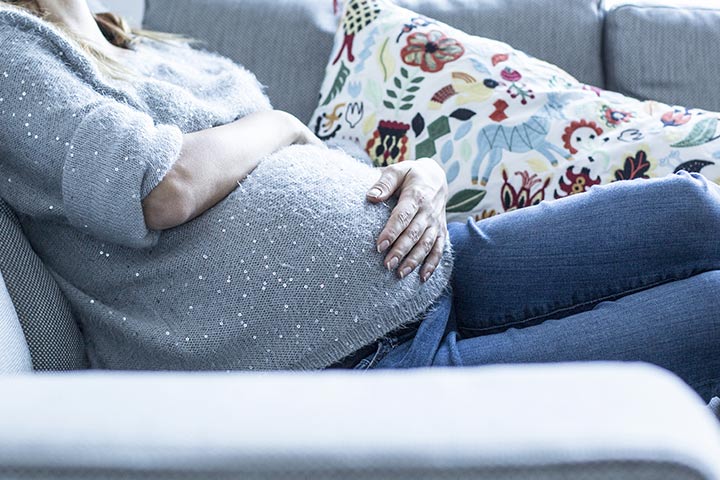
Image: Shutterstock
When you are expecting, you will get to hear plenty of old wives’ tales that revolve around the baby belly and what it means. In fact, even your close friends and family members might have an insight to offer when it comes to this. But, then there are chances that most of what you have been hearing is not exactly true. And, in such a crucial phase of your life, it is important to be able to distinguish the myths from the reality. So, here, we bring you the truth about your baby belly’s size, what it means, and what you can expect.
The Weight That You Put On During Pregnancy
Your gynecologist is going to track the progress of your weight gain in each visit. But, they will not be as worried as you are about it. While there is a recommended weight gain for each trimester, it is important to note that these values are actually averages. These are not exact numbers so don’t let it bog you down.
If you weigh less during your initial days of pregnancy, you may have to gain more weight overall. And, if you are obese, then you would probably have to gain relatively less during the course of your pregnancy.
Also, careful tracking and monitoring of your weight gain during pregnancy might not have any effect whatsoever on your birth outcomes. So, if the weight that you are putting on is not as per the recommendations, focus on your diet more than worrying about what your weighing scale tells you.
Ensure that you eat healthily and have a well-balanced diet that provides all the key nutrients to both you and your little one. Listen to what your body is telling you. If you are feeling hungry, eat. And, if you are feeling full, stop eating. Making sure that your diet is proper will help to keep the weight gain in check on its own.
Pregnancy And BMI
Your Body Mass Index (BMI) to start with can tell you a lot about your pregnancy weight gain. For women who have an average BMI (18.5-24.9) in the beginning, they should gain about one to 4.5 pounds in the first three months. During the second and third trimester, the weight gain should be somewhere between one and two pounds every week. Over the entire course of pregnancy, the weight gain will be between 25 and 35 pounds (1).
But, if your BMI has been below the average ‘18.5’ mark, the overall weight gain should be between 28 and 40 pounds. For women whose BMI lie somewhere from 25 to 29, then they should put on about 15-25 pounds. And, if it goes even above 30, then the recommended weight gain is somewhere from 11 to 20 pounds (2).
When Does The Baby Belly Start Appearing?
Since each woman is unique, when she starts showing is also going to be different. While your little one only becomes big enough during the second trimester for him/her to begin showing, there are many who get a belly early on due to increased water retention and bloating (3).
Again, your fitness level during pregnancy also plays a small role. If you have had stronger abs before pregnancy, you are more likely to hold on to the flat tummy for a longer time. It also varies for women if they have been pregnant earlier. So, if you have been pregnant before as well, you might show sooner. This is primarily because your muscles might have weakened a little in the previous pregnancy (4).
For a lot of women, the weight gain during pregnancy can be a bit too much to handle. Especially if they have worked hard to maintain a healthy BMI all their lives. Fortunately, this should not a major cause of concern for expecting moms. If you are eating healthily, the size of the baby bump should be on track. Good luck, ladies!















